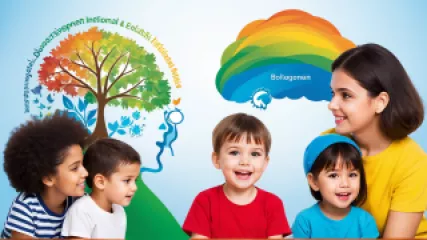Mindfulness Techniques for Coping with Chronic Illness
1 anno fa
Affrontare le Malattie Croniche
Understanding Cognitive Development in Children
1 anno fa
Sviluppo Cognitivo
Learning from Fiction: Therapeutic Approaches for Panic Attacks
1 anno fa
Attacchi di Panico
Mastering Olfactory Perception: The Ultimate Guide to Understanding the Psychology of Smell
1 anno fa
Psicologia dell'Olfatto
Enhancing Emotional Connection Online in Building Healthy Relationships
1 anno fa
Costruire Relazioni Sane
What 'When Harry Met Sally' Teaches Us About Building Healthy Relationships
1 anno fa
Costruire Relazioni Sane
Unlocking the Secrets of Wellness Coaching: An Interview with a Leading Expert
1 anno fa
Coaching per il Benessere
What Are the Psychological Reasons Behind Superstitions?
1 anno fa
Psicologia dietro le Superstizioni
10 Steps to Boost Your Cognitive Development with Online Courses
1 anno fa
Sviluppo Cognitivo
How to Embark on a Self-Improvement Journey Through Wellness Coaching
1 anno fa
Coaching per il Benessere
10 Psychology Techniques for Sustainable Living
1 anno fa
Psicologia della Sostenibilità
Understanding Cognitive Flexibility Sessions for Anxiety
1 anno fa
Flessibilità Cognitiva
My Journey to Discovering the Mind-Body Connection Through Wellness Coaching
1 anno fa
Coaching per il Benessere
Top 10 Strategies for Resolving Guilt
1 anno fa
Risolvere il Senso di Colpa
What Parenting Lessons Can We Learn from Pixar's 'Inside Out'?
1 anno fa
Consigli per Genitori















